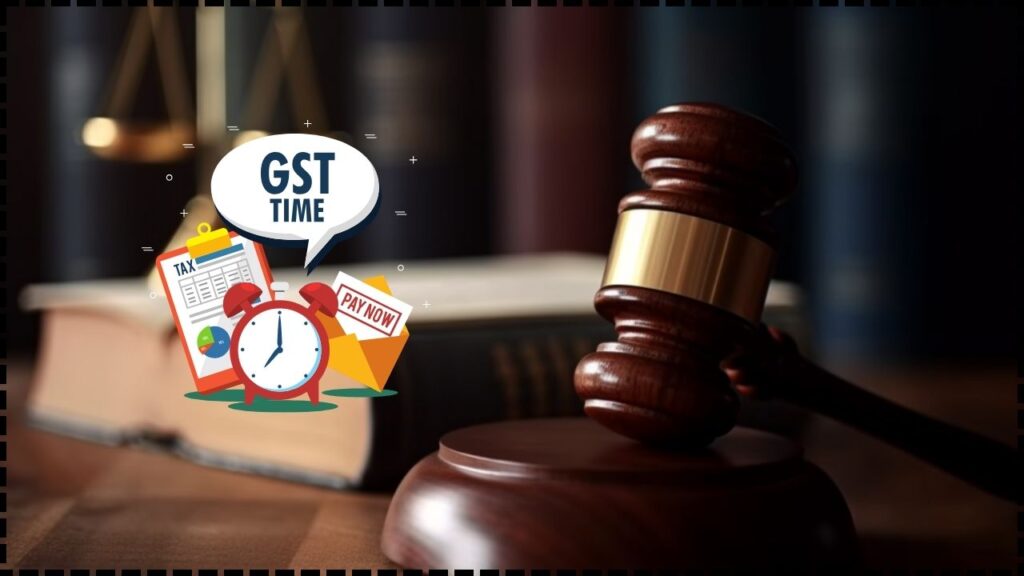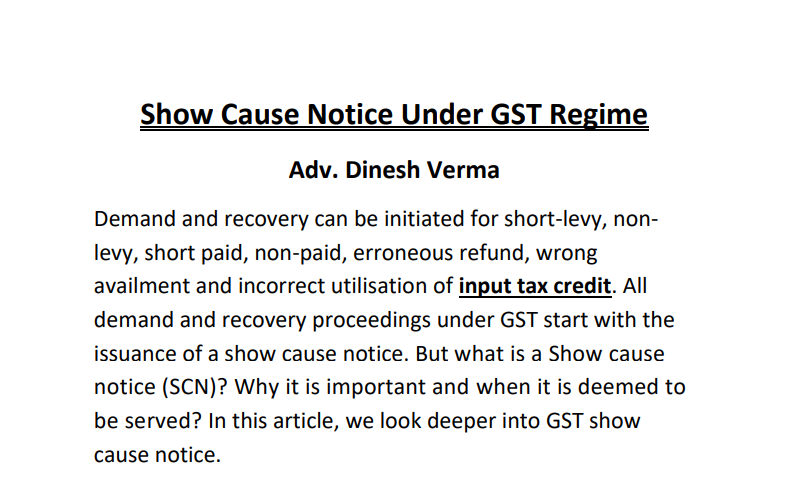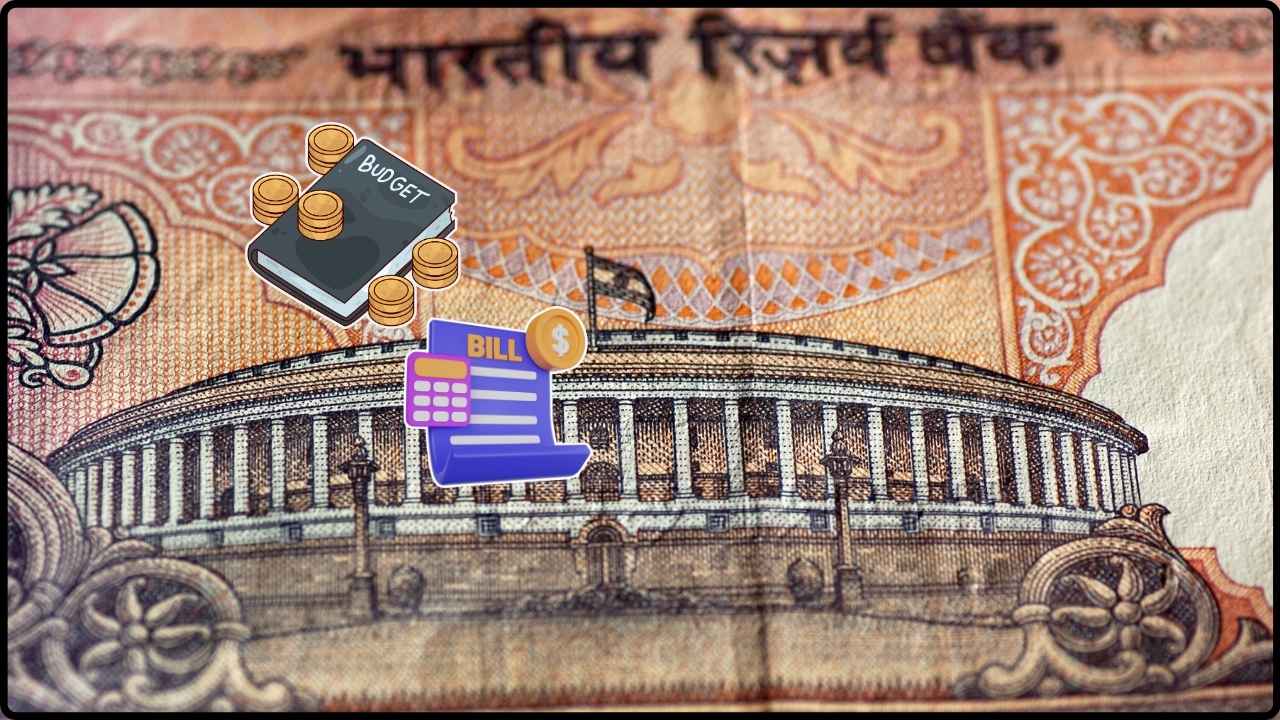
Gauhati HC Rules GST SCN Invalid Without Personal Hearing: In a landmark decision, the Gauhati High Court has ruled that a Goods and Services Tax (GST) Show Cause Notice (SCN) is invalid if it does not provide a clear date and time for a personal hearing. This ruling has brought much-needed clarity to the legal landscape, reinforcing the importance of following procedural requirements under the law. If you’re a taxpayer, a GST professional, or someone keen on understanding the nuances of tax law, this ruling impacts how notices are issued and how your rights are safeguarded. But what exactly does this mean for taxpayers and professionals? How can you protect yourself from receiving faulty notices? Let’s break this down in a way that’s easy to understand, even for someone without a legal background. Whether you’re new to the subject or are looking for practical guidance, this article will walk you through the core issues and provide actionable advice for navigating this complex landscape.
Gauhati HC Rules GST SCN Invalid Without Personal Hearing
In conclusion, the Gauhati High Court’s decision to rule that GST Show Cause Notices (SCNs) are invalid without a specified hearing date is a significant victory for taxpayers. It reinforces the principle of natural justice, ensuring that taxpayers have a fair opportunity to present their case. If you’ve received an SCN without a hearing date, this ruling can help you challenge its validity. Stay informed, seek professional advice, and ensure your rights are protected as you navigate the complexities of GST law.
| Key Topic | Key Points |
|---|---|
| Legal Context | Show Cause Notices (SCNs) must specify a date and time for the personal hearing under Section 75(4) of the CGST Act. |
| Gauhati High Court Ruling | SCNs without a hearing date are invalid. This ruling emphasizes the importance of proper procedure for natural justice. |
| Impact on Taxpayers | Taxpayers must ensure they receive a properly issued SCN for fair treatment. |
| Important Data/Stat | A court ruling from April 2025 confirmed SCNs lacking a hearing date are quashed. |
| Official Resources | Official CGST Act PDF |
What Is a GST Show Cause Notice (SCN)?
Before diving into the implications of the Gauhati High Court ruling, it’s important to understand what a GST Show Cause Notice (SCN) is and how it fits into the larger tax framework.
In simple terms, an SCN is a document issued by tax authorities when they believe a taxpayer has failed to comply with GST laws. This notice serves as a formal warning, asking the taxpayer to explain why they should not be penalized for the alleged violation. It is part of the investigation or enforcement procedure, where the taxpayer is given an opportunity to present their case.
When the SCN is issued, the authorities are legally obligated to offer a chance for a personal hearing. In other words, they must set a date and time for the taxpayer to be heard before making any decisions. However, if this vital step is skipped—meaning no hearing date is provided—the SCN loses its validity, as highlighted by the recent court ruling.
Gauhati HC Rules GST SCN Invalid Without Personal Hearing: Why Is It Important?

The ruling from the Gauhati High Court is important for several reasons. First, it underscores the fundamental legal principle that individuals and businesses must be given a fair chance to be heard before they face penalties or legal consequences. This is part of the natural justice process, ensuring fairness and transparency.
The court ruled that an SCN without a clear hearing date violates the rights of the taxpayer, rendering it legally insufficient. As a result, taxpayers who have received such notices can now challenge them, and in many cases, have them quashed in court.
Why Did the Court Find the SCN Invalid?
The Court’s decision is grounded in Section 75(4) of the CGST Act, which explicitly states that the taxpayer must be given an opportunity to be heard in person before an adverse decision is made. The absence of a specific hearing date means that the authorities haven’t fully complied with this provision, leaving the taxpayer in the dark and deprived of a fair chance to defend themselves.
Real-World Example
Consider a scenario where a business owner named Sarah receives a GST SCN accusing her of underreporting her sales. The notice, however, does not specify when she can appear for a hearing or even provide any details about how she can contest the charge. Under the ruling from the Gauhati High Court, this SCN is now considered invalid because Sarah wasn’t given the opportunity to defend herself properly.
How Does This Affect Taxpayers?
This ruling has immediate and far-reaching consequences for taxpayers. Anyone who has received an SCN without a specified date and time for a personal hearing can take advantage of this decision and seek relief from the courts. If you’re facing an SCN and it lacks a hearing date, here are some key takeaways:
- Ensure Your Rights Are Protected: Always verify that the SCN includes a personal hearing date. If it doesn’t, you might be entitled to challenge it in court.
- Challenge Invalid Notices: Taxpayers can petition the court to quash the notice, as the absence of a hearing date is a valid legal reason for doing so.
- Seek Legal Counsel: If you’re unsure about the validity of a GST notice you received, consulting with a tax professional or lawyer can help you understand your rights and options.
Practical Steps for Taxpayers Facing SCNs
Let’s break it down into actionable steps for those facing a faulty SCN:
1. Check the SCN for the Hearing Date
Make sure the notice explicitly mentions a date and time for a personal hearing. This is essential for it to be valid.
2. Look for Other Legal Issues in the SCN
Even if the notice includes a hearing date, there might be other issues like incorrect information, lack of signature, or missing details. Review the notice thoroughly.
3. Consult with a Tax Professional or Attorney
If you find any discrepancies or if the notice lacks a hearing date, it’s time to consult with a tax professional. They can guide you through the process of challenging the notice.
4. File a Petition with the Court
If necessary, file a petition in the relevant court, such as the Gauhati High Court, to quash the SCN. The court will review the case and, in many instances, rule in favor of the taxpayer.
5. Stay Proactive with Your Tax Obligations
Even if the SCN is quashed, it’s essential to stay proactive with your tax filings and payments. An SCN may be reissued, so ensuring compliance with tax laws is key to avoiding future issues.

Other Important Legal Considerations
In addition to the main issue of the missing hearing date, there are several other legal considerations taxpayers should be aware of:
- Signature of Authorized Officer: SCNs should always be signed by an authorized officer. If the SCN is unsigned or incorrectly signed, this may also render it invalid.
- Clarity and Specificity: SCNs must be specific about the nature of the alleged violation. Vague or generalized notices may also be challenged in court.
- Timely Action: Once an SCN is received, taxpayers should act promptly. Waiting too long to respond or challenge an invalid SCN can weaken the legal position.
- Provisions for Extension: Taxpayers are entitled to request an extension for the personal hearing if they are unable to attend on the specified date. However, this request should be made in writing and within a reasonable time.
Businessman Arrested in ₹34 Crore GST Scam — Shocking Details Emerge
Maruti Suzuki Subsidiary Slammed With ₹86 Crore GST Penalty in Appellate Ruling
India’s Manufacturing Boom Pushes July GST Inflows Up by 7.5 Percent










